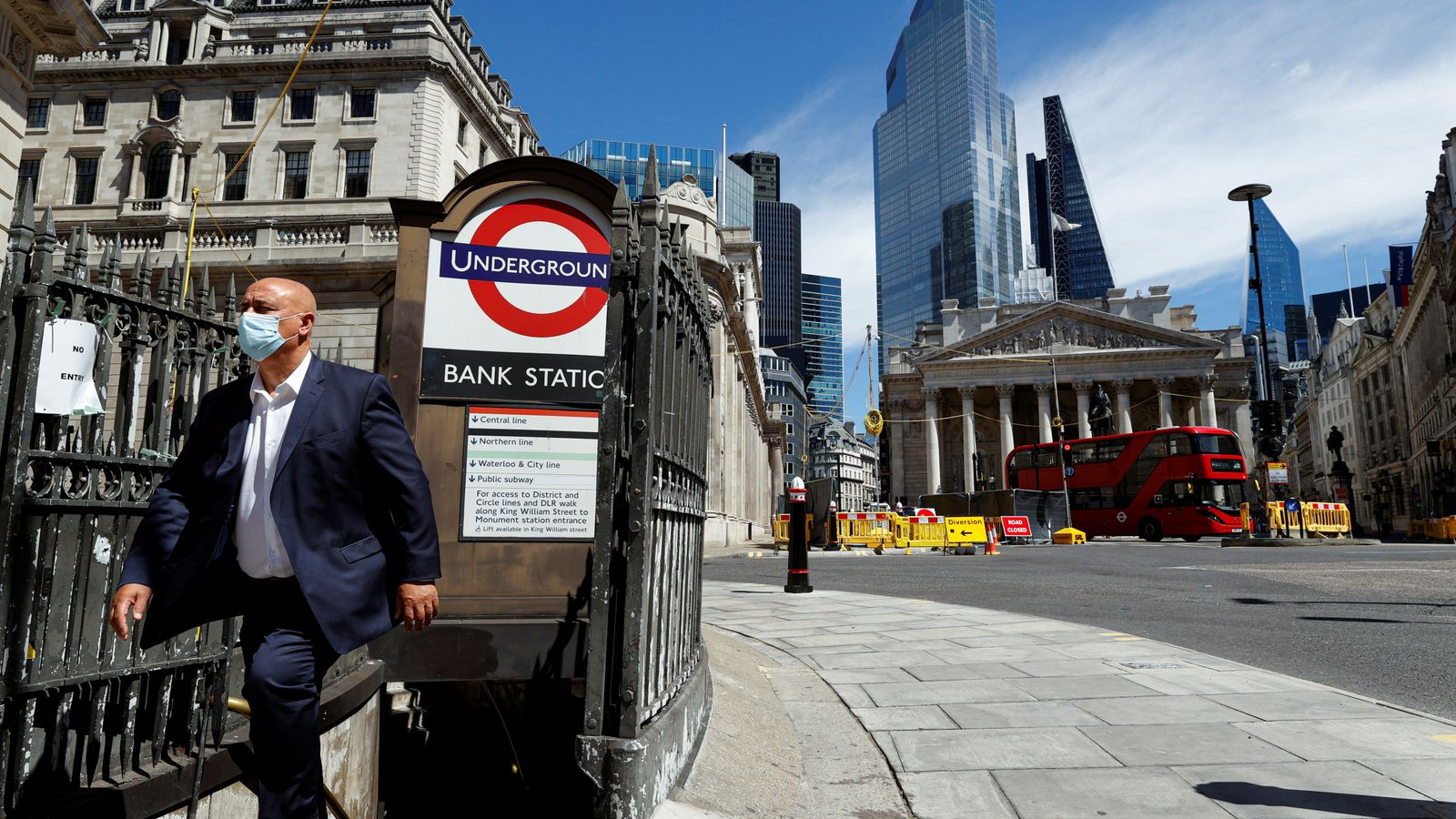The Bank of England has said the UK is still set for a record economic slump due to COVID-19 as it left the interest rate unchanged at 0.1% .
The central bank’s nine-strong Monetary Policy Committee (MPC) voted unanimously to hold rates as it said it expected Britain’s economy to take longer to get back to its pre-coronavirus size.
The MPC said its central projection forecasts that GDP will continue to recover in the near-term, but is not expected to exceed its levels at the end of 2019 until at least the end of 2021.
In May, it had said it thought it might get back to its pre-crisis size during the second half of 2021.
However, the BoE’s protections for 2020 were less gloomy than in May.
Unemployment was expected to peak at 7.5% at the end of this year, almost double the most recent rate but lower than the BoE’s previous estimate of just under 10%.
The overall economy now looked on course for a 9.5% drop this year – the worst performance in 99 years – compared with a 14% plunge in the BoE’s May scenario, which would have been the worst in more than three centuries.
However, GDP is set to rebound by 9% next year, weaker than the 15% surge in May’s scenario and the BoE said there were bigger risks of a slower recovery than a faster one.
The projections showed the MPC thought inflation was likely to go below zero this month before returning to around its 2% target over the next couple of years.
“The committee does not intend to tighten monetary policy until there is clear evidence that significant progress is being made in eliminating spare capacity and achieving the 2% inflation target sustainably,” it said.
The bank also said its review of whether to take rates into negative territory was ongoing and there were factors that could change its previous view that the floor was just above zero.
But such a move could hurt banks’ balance sheets, it warned.
“The MPC will continue to review the appropriateness of a negative policy rate as a policy tool alongside its broader toolkit,” it said.
“The MPC has other instruments available – for example, asset purchases and forward guidance.
“The MPC will continue to assess the appropriate monetary policy stance and will keep the appropriate tools for achieving its remit – including negative policy rates – under review.”
